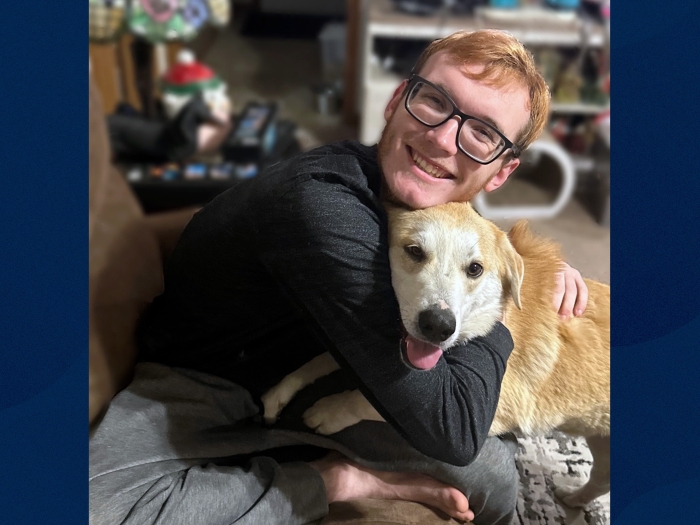The virus, suppressed during the pandemic, rears its ugly head
1:00 PM
Author |

As many a parent can attest, illnesses that seemed to disappear during the COVID pandemic are back with a vengeance. And while levels of the flu and RSV have appeared to peak for the season, a different scourge has exploded on the scene: norovirus.
Like respiratory viruses such as the cold and flu, there is some seasonality to norovirus outbreaks.
“Since spread is often person-to-person, when people crowd together during the cold months, it facilitates spread and outbreaks involve more people,” said Christine Wobus, Ph.D., assistant professor in the Department of Microbiology and Immunology at the U-M Medical School.
The virus is also highly infectious, and spreads readily in places such as daycare centers, schools, and hospitals, and thus outbreaks can be tricky to control.
“A minimum of 10 particles are enough to cause an infection, but there can be up to 100 billion norovirus particles in a gram of stool,” said Wobus. This disgusting fact reveals how the virus is transmitted: through the fecal-oral route.
According to the Centers for Disease Control and Prevention, norovirus, also known as the “stomach flu” though it has no relation to influenza, is the leading cause of vomiting and diarrhea due to acute gastroenteritis, or infection of the intestines. Cases are on the upswing back to pre-pandemic levels.
“People become ill within 12 to 48 hours after exposure and the illness typically lasts 24 to 72 hours. Symptoms include acute onset of vomiting, diarrhea, and nausea. Most people recover completely without long term effects. However, norovirus illness can be serious, especially for young children, older adults and people that are immunocompromised,” said Noreen Mollon, manager of Michigan Medicine’s Infection Prevention & Epidemiology team.
How to avoid norovirus
Washing your hands with soap and water and avoiding touching your face are critical behaviors for avoiding norovirus.
“Norovirus is a non-enveloped virus, so alcohol-based hand sanitizers do not work for it,” explained Wobus.
Hand sanitizers are effective against the flu virus and SARS-CoV-2, the virus that causes COVID-19, because they have a fatty covering, or envelope, that is dried out by alcohol, killing the virus.
In contrast, norovirus must be washed away with soap and water. Wobus adds that bleach-based products should be used to clear contaminated surfaces, unlike for flu and SARS-CoV-2, where alcohol wipes are enough.
Norovirus can also spread through contaminated food, so be careful when eating raw or undercooked foods, such as oysters. Heat above foods above 140 degrees F/60 C for safety.
If you’re unlucky enough to come down with norovirus, isolate and do not prepare food for others, advise Wobus and Mollon. “Keeping sufficiently hydrated is the main treatment,” said Wobus. Unlike for the flu and SARS-CoV-2, there are no antivirals or vaccines.
And if you are taking care of someone with norovirus, be sure to wash all exposed clothing and bedding in the hottest water possible. As for wearing a mask, it may help if it reminds you not to touch your face, however, “handwashing and appropriate surface disinfection is the best way to prevent infection," said Wobus.

Explore a variety of health care news & stories by visiting the Health Lab home page for more articles.

Department of Communication at Michigan Medicine
Want top health & research news weekly? Sign up for Health Lab’s newsletters today!





